Tummy Tuck in Lebanon
Search and Compare the Best Clinics and Doctors at the Lowest Prices for Tummy Tuck in Lebanon

Find the best clinics for Tummy Tuck in Lebanon
With Medijump you can browse 7 facilities offering Tummy Tuck procedures in Lebanon. The cheapest price available is $4,873 in Beirut. And for the cheapest price globally, prices start from $76 in Czech Republic.
Tummy Tuck in Beirut
Price: $ 4,873
Czech Republic offers the best prices Worldwide
Price: $ 76
From 4 verified reviews
Yasmine Zalek, 17 March 2020
Honest, caring and the most natural results! Love Dr. Andre!
From 103 verified reviews
Nada Nassar, 19 August 2020
The best place to be
From 38 verified reviews
Joyce Jabbour, 19 May 2020
It is a very nice hospital, very clean, the service is great, personnel is very friendly and professional. Great hospital! Well done. Thank you for being the best hospital in Lebanon
Beirut Beauty Clinic, located in Mansouriyeh, Beirut, Lebanon offers patients Tummy Tuck procedures among its total of 14 available procedures, across 1 different specialties. The cost of a Tummy Tuck procedure ranges from £3,824 to £6,119, whilst the national average price is approximately £4,070. All procedures and treatments are undertaken by just a small team of specialists, with 3 in total at the Clinic, and they are accredited by AAAASF - American Association for Accreditation of Ambulatory Surgery Facilities
From 3 verified reviews
Lea Ziade, 18 April 2020
perfect experience... great placevwith great team... keep going!!
Dr. Houssein Haidar-Ahmad, located in Mansouriyeh, Beirut, Lebanon offers patients Tummy Tuck procedures among its total of 7 available procedures, across 4 different specialties. Currently, there's no pricing information for Tummy Tuck procedures at Dr. Houssein Haidar-Ahmad, as all prices are available on request only, whilst the national average price is approximately $5,186. All procedures and treatments are undertaken by the lead specialist at the Hospital, and they are not accredited by any recognized accreditations institutes
Dr. Chadi Murr, located in Mansouriyeh, Beirut, Lebanon offers patients Tummy Tuck procedures among its total of 26 available procedures, across 2 different specialties. Currently, there's no pricing information for Tummy Tuck procedures at Dr. Chadi Murr, as all prices are available on request only, whilst the national average price is approximately $5,186. All procedures and treatments are undertaken by just a small team of specialists, with 2 in total at the Hospital, and they have multiple recognized accreditations, including: SBCP - Sociedade Brasileira de Cirurgia PlásticaSICPRE - Società Italiana di Chirurgia Plastica Ricostruttiva ed Estetica
- Home
- Lebanon
Compare Before & After Photos of _procedure_photos.phpTummy Tuck
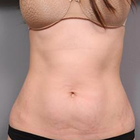
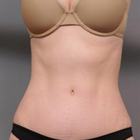
Front view
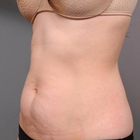
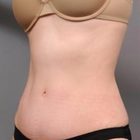
Half-side view
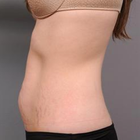
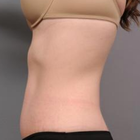
Full-side view
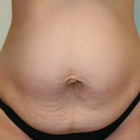
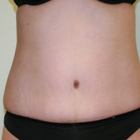
Front view
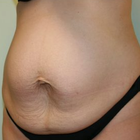
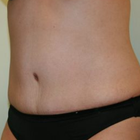
Half-side view
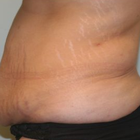
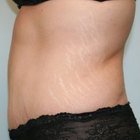
Full-side view


Full-side view
WHY US?
At Medijump, we're making medical easy. You can search, compare, discuss, and book your medical all in one place. We open the door to the best medical providers worldwide, saving you time and energy along the way, and it's all for FREE, no hidden fees, and no price markups guaranteed. So what are you waiting for?

Free

Best Price

Widest Selection

Risk-Free
What you need to know about Tummy Tuck in Lebanon

Also known as abdominoplasty, a tummy tuck is a surgical procedure to create a toned, firm, and flat abdomen by removing excess skin and fat. It has both cosmetic and medical benefits as it can tighten the abdominal muscles, restore the contour of the belly, improve posture, correct hernia, and reduce stress urinary incontinence.
A tummy tuck is suitable for people who want to remove excess skin due to a significant weight loss, aging, or pregnancy. However, not everyone can undergo the procedure. Your surgeon may not allow you to undergo the procedure if you plan to lose a significant amount of weight, you might want to get pregnant in the future, have a body mass index (BMI) that is greater than 30, smokes, have a severe chronic condition, and had an abdominal surgery that caused scar tissue in the past.
What is the cost of Tummy Tuck in Lebanon?
The price of a Tummy Tuck within Lebanon primarily hinges on several elements such as the operating doctor's expertise and credentials, hospital selection, and the intricacies of the operation. It could also fluctuate based on your distinct objectives and the degree of surgical intervention required. Ensure you clarify with your clinic if the cited price includes all facets of patient care, from the initial consultation to follow-up appointments.
Engaging in open conversations with your healthcare provider about the all-inclusive costs is essential. Typically, health insurance won't cover aesthetic surgeries like Tummy Tuck. However, they may partially or completely shoulder the cost if the procedure aims to address health issues such as hernias or skin conditions caused by surplus skin. Hence, a comprehensive discussion with your insurance provider about this matter is absolutely crucial.
What does a Tummy Tuck Procedure Involve?
A tummy tuck procedure will get rid of some of your excess skin and fat and will tighten the muscles in your abdominal wall.
What you need to understand is that a tummy tuck procedure is not an alternative for weight loss or an appropriate exercise program. While its results are significantly permanent, maintaining a positive outcome will require you to have a healthier lifestyle.
Furthermore, this type of treatment procedure is not the same as liposuction. A tummy tuck is a major surgery and not all individuals who wish to undergo it are good candidates. Generally speaking, this specific type of treatment procedure is for both men and women who are in good health. This is also suitable for women who have had more than one pregnancy, as well as both men and women who were formerly obese and still have excess fat and loose skin around their belly area.
You will be advised to postpone your plans for a tummy tuck procedure if you are:
- Planning to get pregnant - you may want to consider it once you’re done having children. A tummy tuck tightens your vertical muscles and future pregnancies may separate those muscles.
- Planning to lose weight - tummy tuck should be done after weight loss.
In preparation for a tummy tuck procedure, you will need to have a consultation with your surgeon. During your consultation, you will be asked about your expected result, goals. Furthermore, your surgeon will also discuss the following options:
- Partial abdominoplasty (Mini abdominoplasty) - this is for those people who have fat deposits below their navel area. This type of tummy tuck procedure usually lasts about two hours, depending on the case.
- Complete abdominoplasty - With this type of tummy tuck surgery, an incision is usually from hip bone to hip bone following the contouring of skin, tissue, and muscle as needed. It will also be required to move the patient’s belly button; patients must also have tube drainage under their skin for a few days.
Before your actual surgery, you may be asked to do the following:
- Quit smoking two weeks before and two weeks after your surgery.
- Eat well balanced complete meals.
- Stop taking certain medications before and after your surgery (prescription drugs, herbal medicines, and supplements)
A tummy tuck procedure typically lasts for about one to five hours, depending on your case. You will also be given general anesthesia while you undergo the surgery, meaning, you will be asleep during the whole procedure.
How Long Should You Stay in Lebanon?
Depending on the extent of your tummy tuck, you may need to stay in the hospital overnight or leave the hospital on the same day. However, since you have to attend follow-up checkups and allow your body to heal, you have to stay in Lebanon for at least 7 days following your discharge from the hospital. Your surgeon will check your overall health and remove the stitches during the follow-up checkups.
What's the Recovery Time for Tummy Tuck Procedures in Lebanon?
The recovery period after a tummy tuck depends on various factors, such as your general health, body weight, and age. In general, you may be able to go back to work (if your job does not require a lot of physical activities) and perform light exercises (such as walking) within 2 to 3 weeks after the surgery. You may need to wait for about 6 to 8 weeks until you can go back to your full normal routine, including performing vigorous activities. Still, your body will continue to heal for a few more months, so it’s better to take it easy until your surgeon allows you to return to your full activity.
What sort of Aftercare is Required for Tummy Tuck Procedures in Lebanon?
Your surgeon will give you detailed aftercare instructions. To avoid any complications, it is important that you follow them closely. The instructions may include restrictions (such as staying away from alcohol and nicotine), light exercises, and a healthy diet. Your surgeon will also tell you how to find an optimal resting position to make you comfortable during recovery. It is important to keep moving and doing some light exercise after the surgery to keep your blood flowing and reduce the risk of a blood clot.
To maintain the results of your tummy tuck, you need to maintain a well-balanced diet and exercise regularly, at least about 30 to 60 minutes every day. You should also limit your alcohol intake. Staying fit and in shape is the main key to keeping the results for a long time.
What's the Success Rate of Tummy Tuck Procedures in Lebanon?
Most patients who have had a tummy tuck reported that they achieve positive results.The Tummy Tuck has exhibited a noteworthy record of success, with a plethora of patients revealing remarkable enhancements in self-concept and perception of physical appearance following the procedure. Nonetheless, it's crucial to harbor genuine prospects and apprehend that the outcomes of the procedure may not always be as anticipated, as they hinge on personal factors such as body framework, genetic inclinations, and lifestyle habits such as exercise and alimentation.
The proficiency of the surgeon and the facilities of the clinic where the procedure transpires greatly influences the success rate. Another pivotal success determinant should be the satisfaction of the patients with the outcomes. Hence, patients are motivated to actively participate in the decision-making procedure, sharing their aspirations and receiving feedback on attainable results.
Only about 3.1% of people developed complications following the surgery.
Are there Alternatives to Tummy Tuck Procedures in Lebanon?
While there are non-surgical options that can be considered as an alternative to this type of treatment procedure, it's important to remember that these alternatives will not give you the same results as a tummy tuck. These non-surgical alternatives only give off limited amounts of skin tightening and a small amount of non-surgical fat reduction.
CoolSculpting - in this procedure, your fat cells will be frozen and eventually be eliminated by your body. You will usually see results after a few weeks and its final effects will be shown typically within three months.
SculpSure - unlike CoolSculpting, SculpSure makes use of laser beam light to kill your fat cells. During the procedure, the laser will be used to heat the fat cells to a point of irreversible damage. Once your fat cells are damaged, they will eventually be swept away by your body’s lymphatic system. This procedure is particularly great for the upper and lower abdominal area, as well as flanks. Little to no recovery time is needed, and full results can be seen within 12 weeks after the first treatment.
What are Potential Risks of Tummy Tuck?
Although the success rate is high, you need to be aware that the procedure does have some risks of complications. These include:
- Seroma (fluid accumulation beneath the skin)
- Unexpected scarring
- Poor wound healing
- Unexpected scarring
- Tissue damage or death
- Bleeding
- Infection
- An allergic reaction to anesthesia
- Changes in skin sensation
This is why following your surgeon’s aftercare instruction is very important, as it helps reduce the risk of complications.
Whilst the information presented here has been accurately sourced and verified by a medical professional for its accuracy, it is still advised to consult with your doctor before pursuing a medical treatment at one of the listed medical providers
No Time?
Tell us what you're looking for and we'll reachout to the top clinics all at once
Enquire Now

Popular Procedures in Lebanon
Prices Start From $111

Prices Start From $120

Prices Start From $931

Prices Start From $236

Recommended Medical Centers in Lebanon for Tummy Tuck

- Interpreter services
- Translation service
- Religious facilities
- Medical records transfer
- Medical travel insurance
- Health insurance coordination
- TV in the room
- Safe in the room
- Phone in the room
- Private rooms for patients available

- Interpreter services
- Translation service
- Religious facilities
- Medical records transfer
- Medical travel insurance
- Health insurance coordination
- TV in the room
- Safe in the room
- Phone in the room
- Private rooms for patients available

- Interpreter services
- Translation service
- Religious facilities
- Medical records transfer
- Medical travel insurance
- Health insurance coordination
- TV in the room
- Safe in the room
- Phone in the room
- Private rooms for patients available

- Interpreter services
- Translation service
- Religious facilities
- Medical records transfer
- Medical travel insurance
- Health insurance coordination
- TV in the room
- Safe in the room
- Phone in the room
- Private rooms for patients available

- Interpreter services
- Translation service
- Religious facilities
- Medical records transfer
- Medical travel insurance
- Health insurance coordination
- TV in the room
- Safe in the room
- Phone in the room
- Private rooms for patients available

- Interpreter services
- Translation service
- Religious facilities
- Medical records transfer
- Medical travel insurance
- Health insurance coordination
- TV in the room
- Safe in the room
- Phone in the room
- Private rooms for patients available

- Interpreter services
- Translation service
- Religious facilities
- Medical records transfer
- Medical travel insurance
- Health insurance coordination
- TV in the room
- Safe in the room
- Phone in the room
- Private rooms for patients available

- Interpreter services
- Translation service
- Religious facilities
- Medical records transfer
- Medical travel insurance
- Health insurance coordination
- TV in the room
- Safe in the room
- Phone in the room
- Private rooms for patients available

- Interpreter services
- Translation service
- Religious facilities
- Medical records transfer
- Medical travel insurance
- Health insurance coordination
- TV in the room
- Safe in the room
- Phone in the room
- Private rooms for patients available

- Interpreter services
- Translation service
- Religious facilities
- Medical records transfer
- Medical travel insurance
- Health insurance coordination
- TV in the room
- Safe in the room
- Phone in the room
- Private rooms for patients available
Tummy Tuck in and around Lebanon
Lebanon, a country on the eastern shore of the Mediterranean Sea, is one of the smallest sovereign states. The country boasts a fascinating mixture of the Middle East and the West, Christianity, and Islam, and tradition and modernity. It has everything from golden beaches and World Heritage Sites to energetic nightlife and delicious cuisine. Among other countries in the Middle East, Lebanon appears to be one of the most popular medical tourism destinations. Over 10% of the tourists visiting the country, particularly from neighboring countries, come to receive medical care. Many hospitals and clinics in the country are accredited to the ISO:9000 standard and offer world-class specialist services in spine treatment, orthopedics, organ transplant, and other complex surgeries, as well as advanced cancer treatments. Cosmetic and reconstructive surgery are also popular.
Popular Parts of Lebanon
Beirut, the capital and largest city of Lebanon, is filled with historic landmarks and natural wonders. The most famous attractions in the city are the National Museum of Beirut, the Corniche and Pigeon Rocks, Sursock Museum, and Mohammed Al Amin Mosque. Many people also come to Lebanon to visit the port town of Sidon. Once a rich and thriving Phoenician city, it is dotted with historical monuments and ancient remnants, particularly in its Old City. Other popular cities include Tripoly, Baalbek, Byblos, and Tyre.
Weather and Climate in Lebanon
Lebanon has four seasons: winter (December to March), spring (April to May), summer (June to September), and autumn (October to November). Winter is the rainy season with high precipitation levels and cool temperatures. It is snowy in the mountains, but in some places, such as Beirut, it just rains during this season. Summer is hot, sunny, and dry, and can get very humid in cities located close to the sea. In the summer, the average temperatures are around 28°C to 30°C. Spring and autumn are both warm and pleasant.
Getting around in Lebanon
The main international airport where visitors fly into and out of Lebanon is Beirut–Rafic Hariri International Airport, which is the only operational commercial airport in the country. It serves international flights to numerous major cities across Europe and the Middle East, including Moscow, Paris, London, and Dubai. Given the small size of the country, there are no internal flights. Intercity buses and minibus are available and have an extensive network, especially in coastal areas. The best way to get around the country is by hiring a car (with a driver) or by using intercity taxis.
Tourist Visas in Lebanon
All visitors need to obtain a visa to enter and stay in Lebanon unless they come from one of the seven visa-exempt countries (including Kuwait, Bahrain, Qatar, Saudi Arabia, Oman, the United Arab Emirates, and Jordan). Citizens of 81 countries, including all EU countries, Australia, China, Canada, and the United States, are eligible for a visa on arrival for a maximum stay of 30 days. A conditional visa on arrival is available for citizens of 15 countries, including Algeria, Libya, Iraq, and Yemen.
Additional Information
- Local Currency: Lebanese Pound (LBP) is the official currency in Lebanon. 1 USD is equivalent to around 1,507 LBP. US dollars and the euro is widely accepted as well.
- Money & Payments: ATMs are widely available in many places around Beirut and other large cities. Many ATMs dispense both US dollars and Lebanese pounds. Credit cards, particularly Visa and MasterCard, are accepted at most major establishments. Tipping can be expected, usually around 10% to 15% of the bill.
- Local Language: Arabic is the official language in Lebanon. English and French are widely spoken as well, and many Lebanese can speak at least two to three languages.
- Local Culture and Religion: Islam (around 60% of the population) and Christianity (around 34%) are the primary religions in Lebanon. About 5% of Lebanese practice the Druze faith, while other religions are practiced by the remaining 1% of the population.
- Public holidays: New Year’s Day, Christmas Day, Eid al-Fitr, Eid al-Adha, All Saints’ Day, Resistance and Liberation Day, as well as Independence Day are some of the more important holidays in Lebanon.
Popular Searches
- Plastic Surgery in Thailand
- Dental Implants in Thailand
- Hair Transplant in Thailand
- Breast Augmentation Thailand
- Gastric Sleeve in Thailand
- Gender Reassignment Surgery in Thailand
- Laser Hair Removal in Bangkok
- Botox in Bangkok
- Dermatology in Bangkok
- Breast Augmentation in Bangkok
- Coolsculpting in Bangkok
- Veneers in Turkey
- Hair Transplant in Turkey
- Rhinoplasty in Turkey
- Stem Cell Therapy in Mexico
- Rhinoplasty in Mexico
- Liposuction in Mexico
- Coolsculpting in Tijuana
- Rhinoplasty in Korea
- Scar Removal in Korea
- Gastric Sleeve in Turkey
- Bone Marrow Transplant in India
- Invisalign in Malaysia
- Plastic Surgery in the Dominican Republic
- Tummy Tuck in the Dominican Republic
- Plastic and Cosmetic Surgery in Poland
- Rhinoplasty in Poland
- Hair Implant in Poland
- Dental Implants in Poland
- IVF in Turkey




